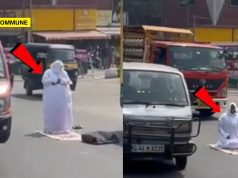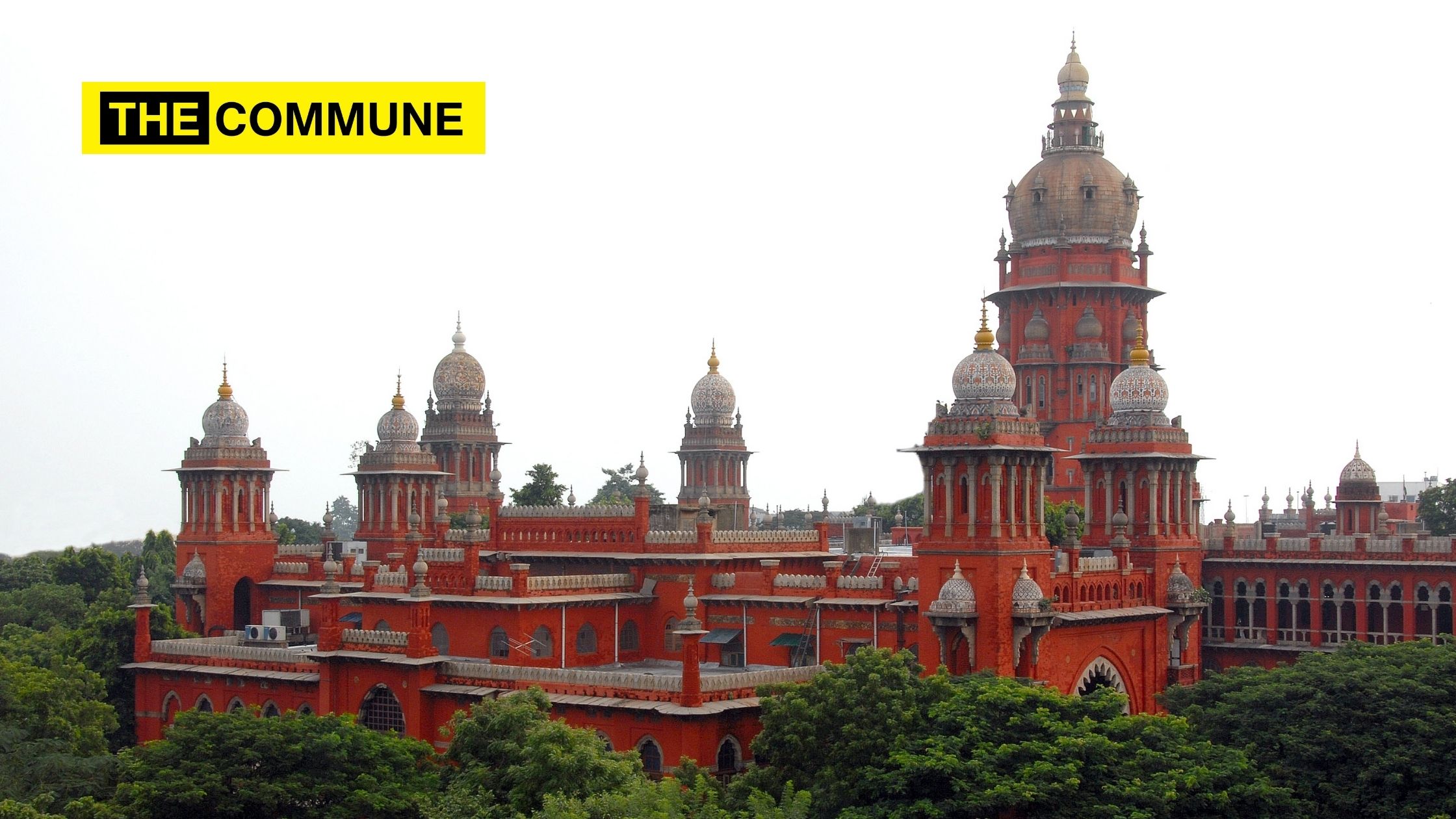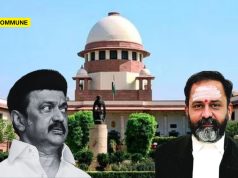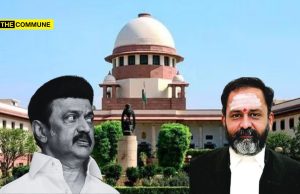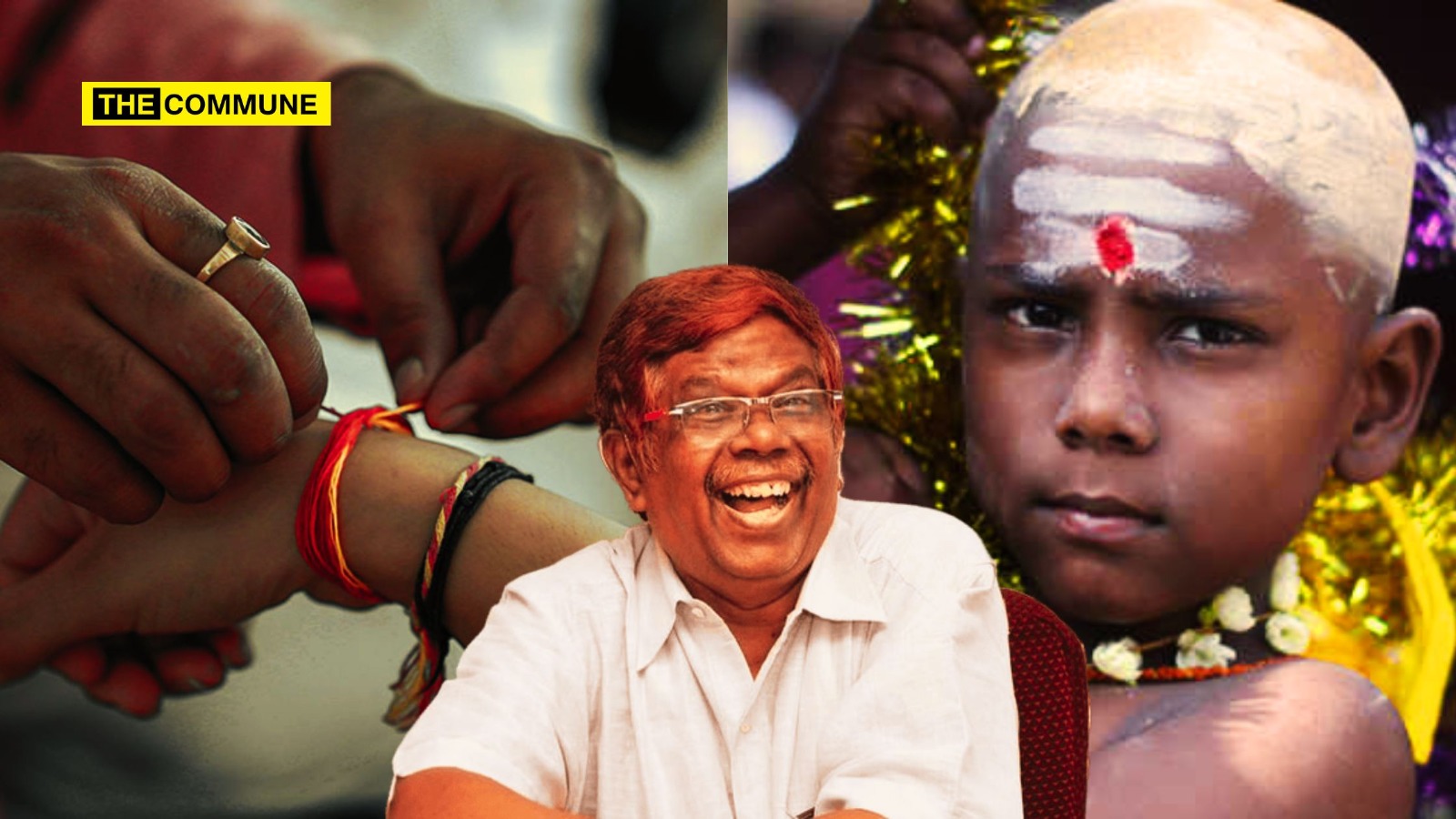
Justice Chandru’s committee was formed after the disturbing Nanguneri incident in Tirunelveli district where two Scheduled Caste students were attacked by students from an intermediate caste.
The Nanguneri Incident
A Class 12 Scheduled Caste student Chinnadurai, aged 17, and his younger sister, aged 14, were viciously attacked with sickles within the confines of their home on the night of 9 August 2023. The assault, carried out by three of Chinnadurai’s schoolmates, came just hours after he had lodged a complaint against them with the school headmaster, detailing their persistent harassment. The assailants belonged to a dominant caste, were apprehended by the police and charges were filed under the Scheduled Caste and Scheduled Tribes (Prevention of Atrocities) Act.
Reports indicated that Chinnadurai had been subjected to caste-based harassment at the government-aided school in Valliyoor. The perpetrators, belonging to the Maravar community, reportedly subjected him to humiliation, coercing him to procure cigarettes and snacks for them and subjecting him to bullying. The situation escalated to such an extent that Chinnadurai felt compelled to share his torment with his parents and even stopped attending school a week before the horrifying attack.
The school administration did summon Chinnadurai and his parents for a meeting, during which the young victim communicated the psychological agony he was enduring due to the harassers. While the school authorities warned the harassers and urged the victim to resume his studies, events took a sinister turn on Wednesday when the gang confronted Chinnadurai within the school premises, warning him of dire consequences for having reported them.
Later that night, around 10:30 pm, the six accused students reportedly reached the victim’s residence, wielding sickles, and launched a brutal assault. In an attempt to shield her brother, Chinnadurai’s sister also suffered injuries.
The Committee & Its Recommendations
To prevent such caste-based violence, the government set up a one-man committee. Retired Madras High Court judge Justice K. Chandru submitted the report to CM Stalin and recommended “significant” changes to eliminate caste indicators in Tamil Nadu schools. The recommendations include banning coloured sacred wrist threads, rings, and forehead marks – tilak that signify caste, and removing caste-related names from schools. Point 8B states, “Students should be prohibited from wearing any coloured wristbands, rings, or forehead marks (Tilaka). They must also refrain from coming to school on bicycles painted with reference to their caste or exhibiting any caste-related sentiments. Failure to comply with these rules must result in appropriate action being taken, in addition to advising their parents or guardians.”
Some of the other recommendations include:
- The report advises that students must not display any caste-related sentiments, including using bicycles marked with caste references. Non-compliance should result in appropriate actions and parental advisement.
- State-run schools should remove terms like ‘Kallar Reclamation’ and ‘Adi Dravidar Welfare’ from their names. Private schools should be requested to drop caste appellations, with legal action considered for non-compliance, potentially through legislative changes.
- The committee also recommends that student attendance registers omit any caste-related details. Teachers should avoid calling students by their caste or making derogatory remarks linked to caste.
- To enforce these changes, the report suggests amending the Tamil Nadu Societies Registration Act, 1975, to prevent societies intending to start educational institutions from using caste-based names.
- The report also calls for new legislation to promote social inclusion and eradicate caste discrimination, imposing responsibilities on students, staff, and school management, with mechanisms for supervision and penalties for non-compliance.
Additionally, the committee proposes enhancing local bodies’ control over primary education, granting block-level administrations full authority over schools, including staffing decisions. The state government should handle curriculum guidelines, standards, and board exams while formulating new laws to empower local bodies and amend the Tamil Nadu Panchayat Act of 1994 for a more community-focused education system.
This removal of caste names, hiding/”protecting” caste names, and prohibiting wearing Tilak and sacred wrist threads is akin to the Dravidian model of making Hindus remove their caste/surnames. The Dravidian ideologues enforced this removal of a person’s surname as a means to “abolish/eradicate” caste. Ironically, despite having succeeded in removing surnames as a mode of eradicating caste differences, incidents like Nanguneri continue day in and day out.
Critics see this move as a method to divide the Hindus further based on caste and also ensure that Hindus lose their identities forever. Instead of creating awareness and empathy in children about various castes and fostering harmony, recommending such drastic and Hinduphobic measures will only lead to dividing the society further and deepening the Dravidianist ideologies in the minds of the people and destroying society.
It is noteworthy that this retired judge also had hurled casteist slurs at Union Finance Minister Nirmala Sitharaman. In this tweet, Justice Chandru appeared to make a veiled remark about a BJP leader, presumably Annamalai, by stating, “Like Pickle Lady (a derogatory term targeting Tamil Brahmin women), he is attempting to become a Rajya Sabha member from Karnataka.” He implied that Annamalai’s aspirations mirror those of Nirmala Sitharaman, referred to as ‘Oorka Ammaiyaar.’
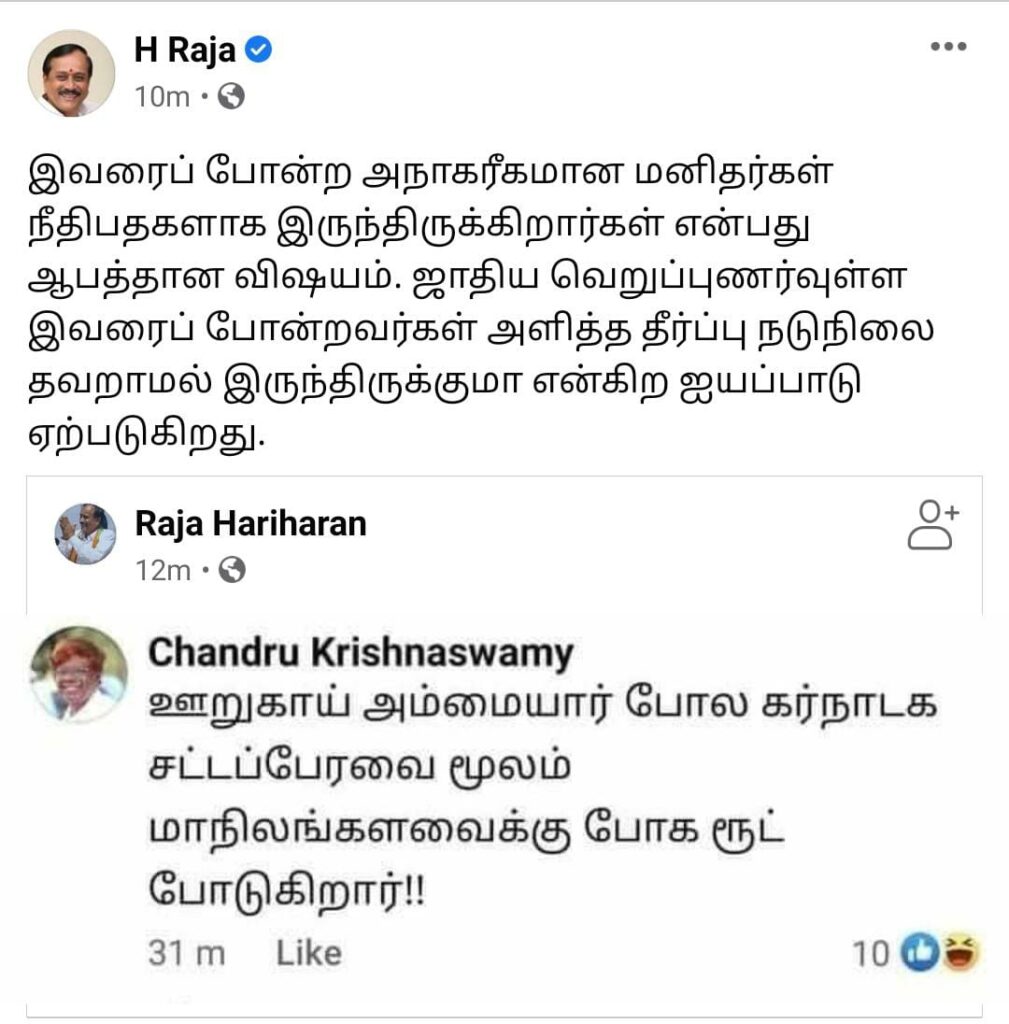
(with inputs from The Hindu)
Subscribe to our channels on Telegram, WhatsApp, and Instagram and get the best stories of the day delivered to you personally.

